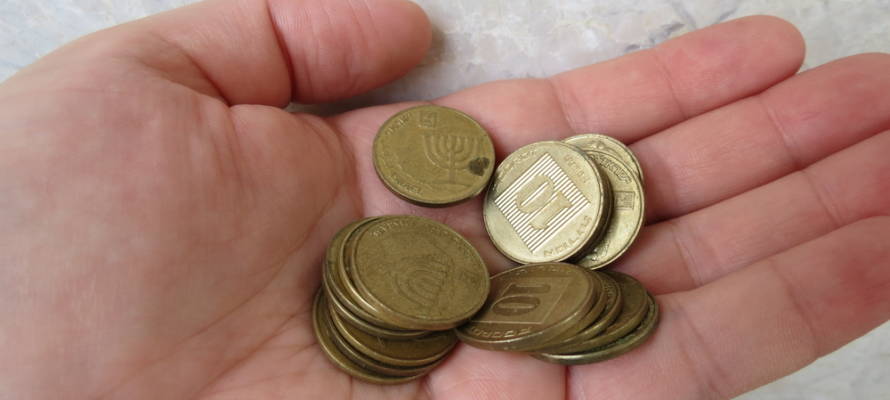An ancient Torah commandment given to farmers conveys an important lesson for all of us that remains relevant to this day.
By Rabbi Ari Enkin, Rabbinic Director, United with Israel
This week’s Torah portion is “Emor” (Leviticus 21:1–24:23), and in it we read about the rules for Kohanim, descendants of Aaron the High Priest, which is one of the few tribes whose lineage is preserved and whose roles are practiced to this very day.
After presenting several dozen mitzvot (Torah commandments) related to the Kohanim, the reading continues with the annual holiday cycle and their relevant laws. There are many more mitzvot as well, as this week’s Torah portion contains over 10 percent of the all the mitzvot in the Torah.
One of the mitzvot is that of “Pe’ah,” the requirement to leave a corner of one’s field for the poor. As the Torah says, “When you reap the harvest of your land, you shall not remove … the corners of your field… For the poor … you shall leave them …” (23:22).
This very simple and clear mitzvah is a command to the farmer to leave a corner of his field unharvested when he harvests the rest of the field and gathers in the crops. It is noted that this mitzvah of “tzedaka,” charity, is very different from most other forms of charity. As a general rule, charity is understood to mean the responsibility of giving and donating to the poor. In this case, however, we do not give anything to anyone. We simply leave. Walk away. We do nothing. The poor come to take on their own. An interesting difference, is it not?
When a person needs to take, he may feel embarrassed. It takes courage. Nobody wants to need to ask or to take. But there are times when we need help from others, whether financial, carpool, shopping, or other.
So, in an effort not to embarrass or humiliate the poor, God tells the farmer to simply leave a portion of the field unharvested. This allows the poor man to remain unseen and anonymous. He can come in the middle of the night when no one is around. As such, the mitzvah of “Pe’ah” is a form of charity that helps maintain the dignity of the recipient.
Most of us today are not farmers, and as such, the mitzvah of Pe’ah remains in the books. However, there are things that we can do “in the spirit” of Pe’ah in order to keep some of that mitzvah alive. For example, giving charity to the poor of one’s neighborhood anonymously will ensure that the recipient doesn’t feel embarrassed every time he sees his benefactor in the street. So too, doing good deeds and giving charity without any recognition are indisputable proof that one’s intentions are altruistic, certainly giving God that much more pleasure in your deeds.
There are many mitzvot today that, for many reasons, cannot or are no longer performed. Learning about them and living in the spirit of the messages they are meant to convey ensures that we are living a true Torah life.
For more insights by Rabbi Enkin on this week’s Torah reading, click on the links below.
https://unitedwithisrael.org/living-torah-discover-the-only-true-protection-from-temptation/
https://unitedwithisrael.org/living-torah-being-jewish-is-a-24-7-commitment/
https://unitedwithisrael.org/living-torah-teaching-by-example/
Do You Love Israel? Make a Donation to Show Your Support!
Donate to vital charities that protect Israelis and help inspire millions around the world to support Israel too!
Now more than ever, Israel needs your help to fight and win the war -- and also the battle of public opinion.
Anti-Israel bias and boycotts are out of control. Israel's enemies effectively use social media to incite brutal terror against innocent Israeli civilians. Please help us fight back!




